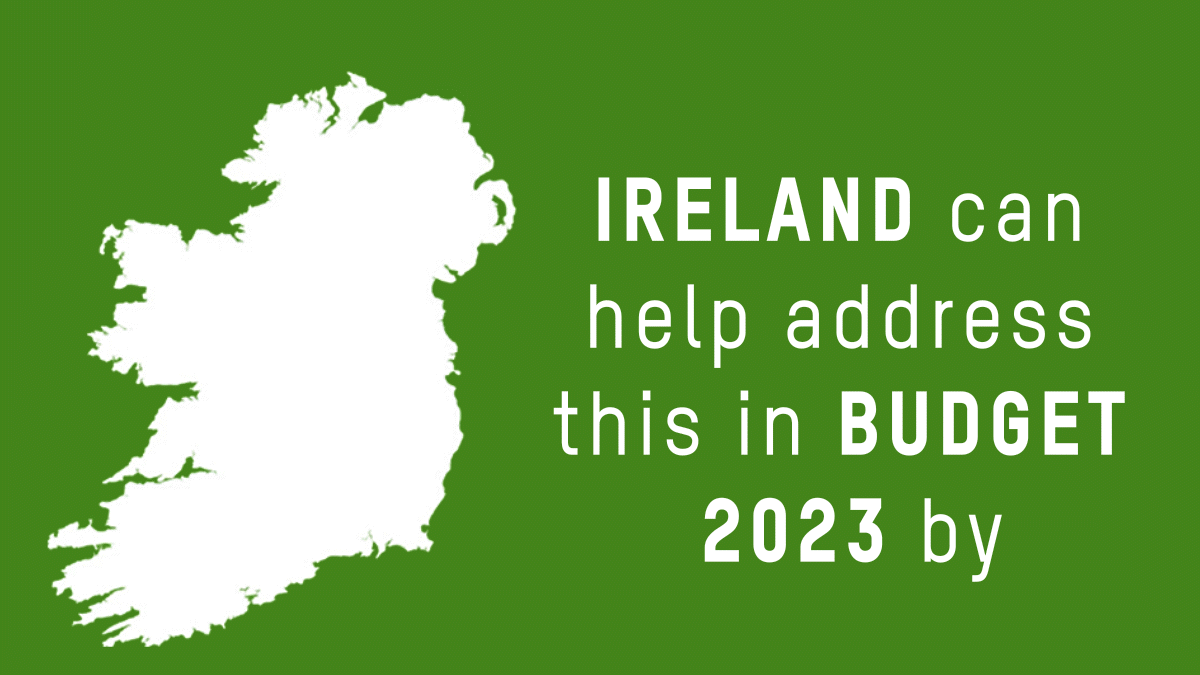- 4 min read
- Published: 18th August 2022
How budget 2023 can help tackle low income countries’ fiscal and debt crisis
The economic hit to low-income countries due to the ongoing fallout from the COVID-19 pandemic and the war in Ukraine is being exacerbated by the rapid onset of climate breakdown. It is creating rapidly worsening debt distress and fiscal conditions in many low- and middle-income countries while citizens face severe inflationary pressures. Yet 87 percent of the International Monetary Fund’s (IMF) COVID-19 loans are requiring developing countries to adopt tough, new austerity measures that will further exacerbate poverty and inequality- a policy that has been recognised as counter-productive by the IMF, the EU, and UNCTAD.
$650 billion-worth of Special Drawing Rights (SDR) were issued by the IMF in August 2021, as an easily accessible form of finance or cash for countries struggling with the global crisis. However, these were distributed according to quotas rather than needs, in line with IMF rules. This means that $400 billion went to high-income countries, $230 billion to middle-income countries, and just $21 billion to low-income countries, despite the tremendous needs of low-income countries. Going a little way to make up for that inequity, G20 countries committed to reallocating $100 billion of their share back to low-income countries. Seven months later, we have still only seen firm pledges of $36 billion. Ireland has received $4.69 billion in Special Drawing Rights (SDRs).
In Budget 2023 Ireland should set an example by reallocating 100% of its $4.69 billion allocation of IMF Special Drawing Rights (SDRs) to countries most in need. This could be done bilaterally, through conversion into hard currency, to low and middle-income countries in Africa and Asia which are most food insecure, or else multilaterally through a vehicle which strictly avoids conditionality and is concessional. Although barriers have been advanced to the reallocation of SDRs, such as to the ‘lending’ of them by the European Central Bank, we believe that what is most absent is the political will to effectively reallocate these much-needed emergency funds. This is where Ireland can provide global leadership. Our co-signed Civil Society Organisations’ Principles for Fair Channelling of Special Drawing Rights should be followed. Such transfers should come with no economic policy conditionality nor sectoral bias and, if they cannot be grant-based, they should have extremely low-interest rates and extended horizons and grace periods. Special Drawing Rights (SDRs) rechannelling should not be eligible to be counted as ODA. SDRs do not represent a real donor effort and cannot be used in the same manner as other financial transfers. Also, their character and quality does not align with the requirements of ODA and, thus, should not be counted as such.
Rising interest rates in rich nations are fuelling the debt crisis, with many of the world’s poorest countries facing default or crippling repayments. Debt servicing for the world’s poorest countries is estimated at $43 billion in 2022. In January this year, the World Bank estimated that 33 countries were already “in” or at “high” risk of debt distress. In 2021, debt represented 171% of all spending on healthcare, education and social protection combined for low- income countries.[1] The global response to this impending debt crisis has been a series of half measures. The international financial institutions lent more money, adding on to existing debt burdens and the G20 offered a partial bilateral debt payment suspension that kicked the can down the road; This money being used to service debt is precious – money needed to afford soaring food import bills and ongoing COVID-19 responses, let alone investments in an equitable and sustainable future.

Ireland should support immediate and unconditional cancelation of all unpayable debts to poorer countries. The two main debt initiatives driven by the international community – the Debt Service Suspension Initiative (DSSI) and the Common Framework – have proven largely ineffective. Ireland must prioritize the debt agenda and support initiatives to cancel all debt payments in 2022 and 2023 to bilateral creditors, and multilateral institutions such as the IMF and the World Bank for all low and lower-middle-income countries that require it. It should also support efforts to immediately suspend debt service for countries applying to the Common Framework and to establish a new debt relief process which addresses its failures, particularly ensuring private sector participation. Cancelling debt payments is the fastest way to keep money in countries and to free up resources to tackle the urgent health, social and economic crises.
Support initiatives aimed at creating additional finance flows including the reallocation of Special Drawing Rights (SDRs) to those countries most in need.
Support immediate cancellation of 2022 and 2023 debt and interest payments for all low and middle-income countries that require it.
For more details of how Budget 2023 can contribute to addressing inequality, ending poverty and creating a more sustainable world please see our pre-budget submission.
[1]A Nordic Solution to the New Debt Crisis, Matthew Martin for Norwegian Church Aid, forthcoming.
